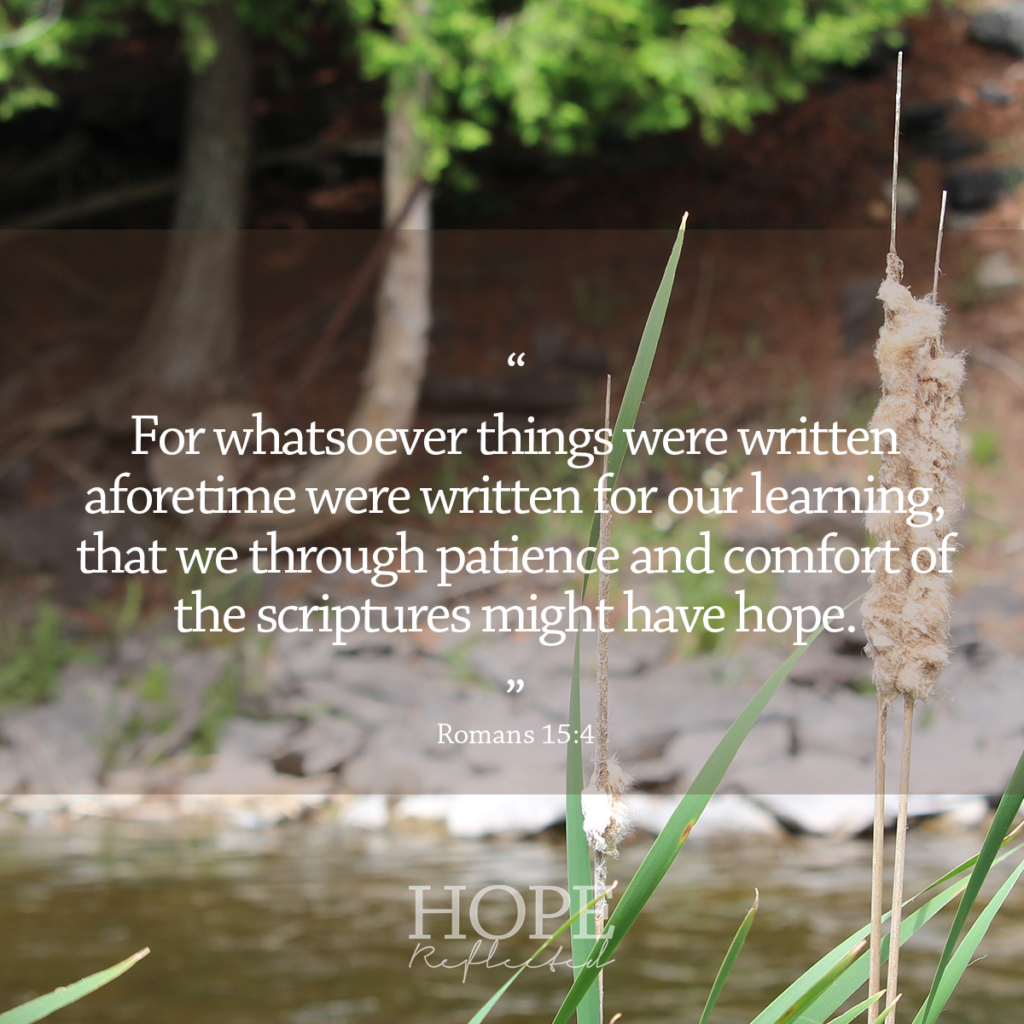From Self to Selfless
Written by H, Posted in Christian Living, Published Work

New Year’s resolutions are almost always focused on self.
Popular every January, New Year’s resolutions are almost always focused on self: Bettering ourselves, practicing new habits, or letting go of our old ways. Rather than be self-focused, each of us would benefit so much more if we would choose to be God-focused, turning our eyes to the Creator, growing in our relationship with Him, and dedicating more time to our daily devotions than once-a-year resolutions.
“Each of us would benefit so much more if we would choose to be God-focused, turning our eyes to the Creator, growing in our relationship with Him, and dedicating more time to our daily devotions than once-a-year resolutions.”
Hope Reflected
There is a great danger when we put so much emphasis on our “self”.
Self-deception is the lie that we are enough in and of ourselves. Rooted in pride, self-deception tells us that we are right, that we can save ourselves, that we are enough. The reality is this: “There is a way which seemeth right unto a man, but the end thereof are the ways of death.” (Proverbs 14:12). Rather than taking up our own causes, Jesus called for us to take up our cross and follow Him. “If any man will come after me, let him deny himself, and take up his cross daily, and follow me.” (Luke 9:23). Self-denial requires us to put off the old as Paul wrote (Ephesians 4:22). How fitting for the start of a new year.
Masterfully demonstrated throughout Scripture by Satan himself, self-exaltation honours self first, and puts a focus on what we want and our needs.
Hope REFLECTED
While self-exaltation builds up our reputation, Christ made himself of no reputation.
Self-exaltation, like its cousin self-deception, is once again a sin with deep roots in pride. Masterfully demonstrated throughout Scripture by Satan himself, self-exaltation honours self first, and puts a focus on what we want and our needs. The reality is this: “The fear of the LORD is the instruction of wisdom; and before honour is humility.” (Proverbs 15:33). True honour comes only after humility. Christ is the perfect example of this, and it is His example that we are called to follow. “Let this mind be in you, which was also in Christ Jesus:” Paul wrote in Philippians 2:5. While self-exaltation builds up our reputation, Christ “made himself of no reputation, and took upon him the form of a servant… he humbled himself, and became obedient unto death, even the death of the cross.” (Phil. 2:7-8). These are not character traits that can be developed through self-exaltation, just the opposite. Humility and obedience are only learned through daily self-examination in accordance with God’s Word.
This year, rather than taking a self-focused approach to life, may we aim to live God-focused lives.
Self-righteousness tells us that we haven’t fallen prey to self-deception or self-exaltation, or any of the other self-sins. Self-righteousness encourages us to play the game of comparison, looking down our noses at what others are not doing – or not doing right – and boasting in our own works. Spoiler alert: All our works are as filthy rags (Isaiah 64:6). The reality is this: “There is a generation that are pure in their own eyes, and yet is not washed from their filthiness.” (Proverbs 30:12). Rather than self-righteousness, self-sacrifice sees us being transformed by God’s mercies (Romans 12:1-2). Self-sacrifice forsakes the love of self we read of in 2 Timothy 3:2 and seeks God first and others second (1 Corinthians 10:24). Self-sacrifice is selflessness rather than selfishness. This year, rather than taking a self-focused approach to life, may we aim to live God-focused lives.











![False friends or counterfeit kindness; whatever you want to call it, the world is filled with people who will say one thing to your face and then another behind your back; people who will woo you in order to get something from you.
It’s sad, but it’s true.
The Bible provides us with examples from Joab to Judas, and yet, we’re surprised when we find ourselves deceived and hurt by someone else.
So what are some of the hallmarks of a true friend?
You can read more about this on hopereflected.com [Link in profile]
.
.
.
#friends #friendship #kindness #counterfeitkindness #hurt #proverbs #truefriends #hopereflected #blog #blogpost](https://www.hopereflected.com/wp-content/plugins/instagram-feed/img/placeholder.png)